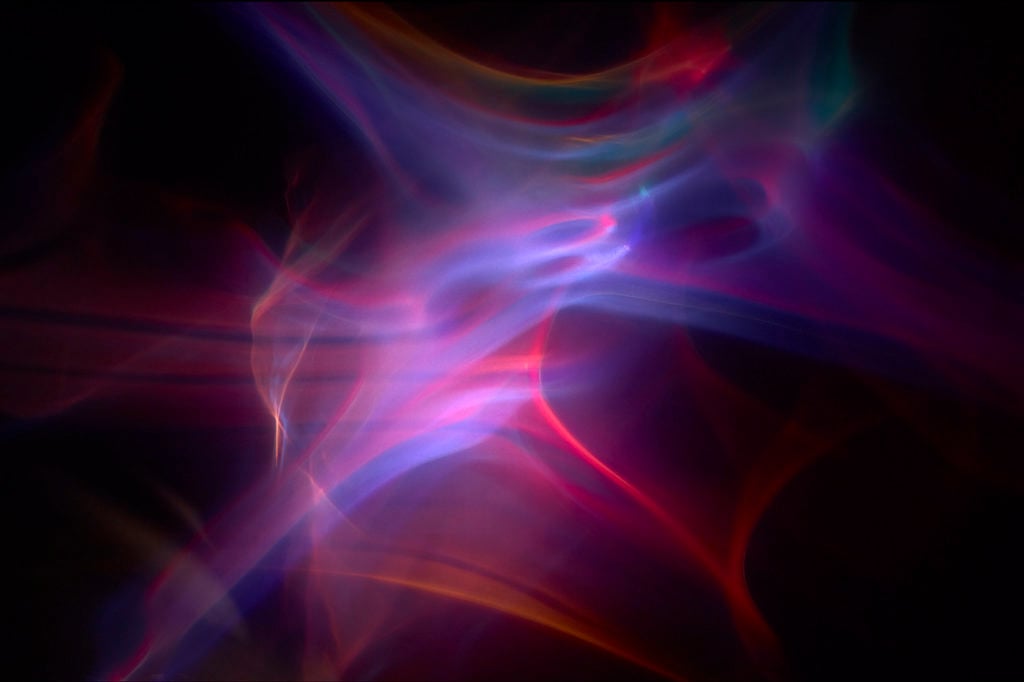Opinion
Thomas Wilfred: High-Art Screensavers Before Our Screens Existed
THE DAILY PIC: Wilfred's light art created created hi-res effects in a pre-res era, as a Yale show reveals.

THE DAILY PIC: Wilfred's light art created created hi-res effects in a pre-res era, as a Yale show reveals.

Blake Gopnik

THE DAILY PIC (#1793): This is a shot of the screen in Study in Depth, Op. 152, a 1959 piece from “Lumia: Thomas Wilfred and the Art of Light.” That’s the third in a hat-trick of compelling, substantial shows that I recently took in at the Yale University Art Gallery in New Haven. Wilfred was an especially notable figure in the 1920s and 1930s, and one of the earliest forerunners of the light and kinetic art that flourished briefly in the 1960s—and is now having a revival.
Using a fairly primitive assortments of lamps, reflectors and motors, Wilfred’s pieces project ever-changing fields of light onto walls and translucent screens. It’s all utterly analog and low-tech, but here’s what’s funny: For a viewer in 2017, it comes off as tremendously hi-res and cutting edge. After all, there’s not a hint of digital noise or pixelation—and how could there be, when all we’re seeing is a bunch of colored light? But we’re so conditioned to the shortcomings of digital imagery, and to notice when they are overcome, that when the digital is entirely absent we read it as having been perfected at last. (Collection of Hirshhorn Museum and Sculpture Garden, Smithsonian Institution, Washington, D.C.)
For a full survey of past Daily Pics visit blakegopnik.com/archive.